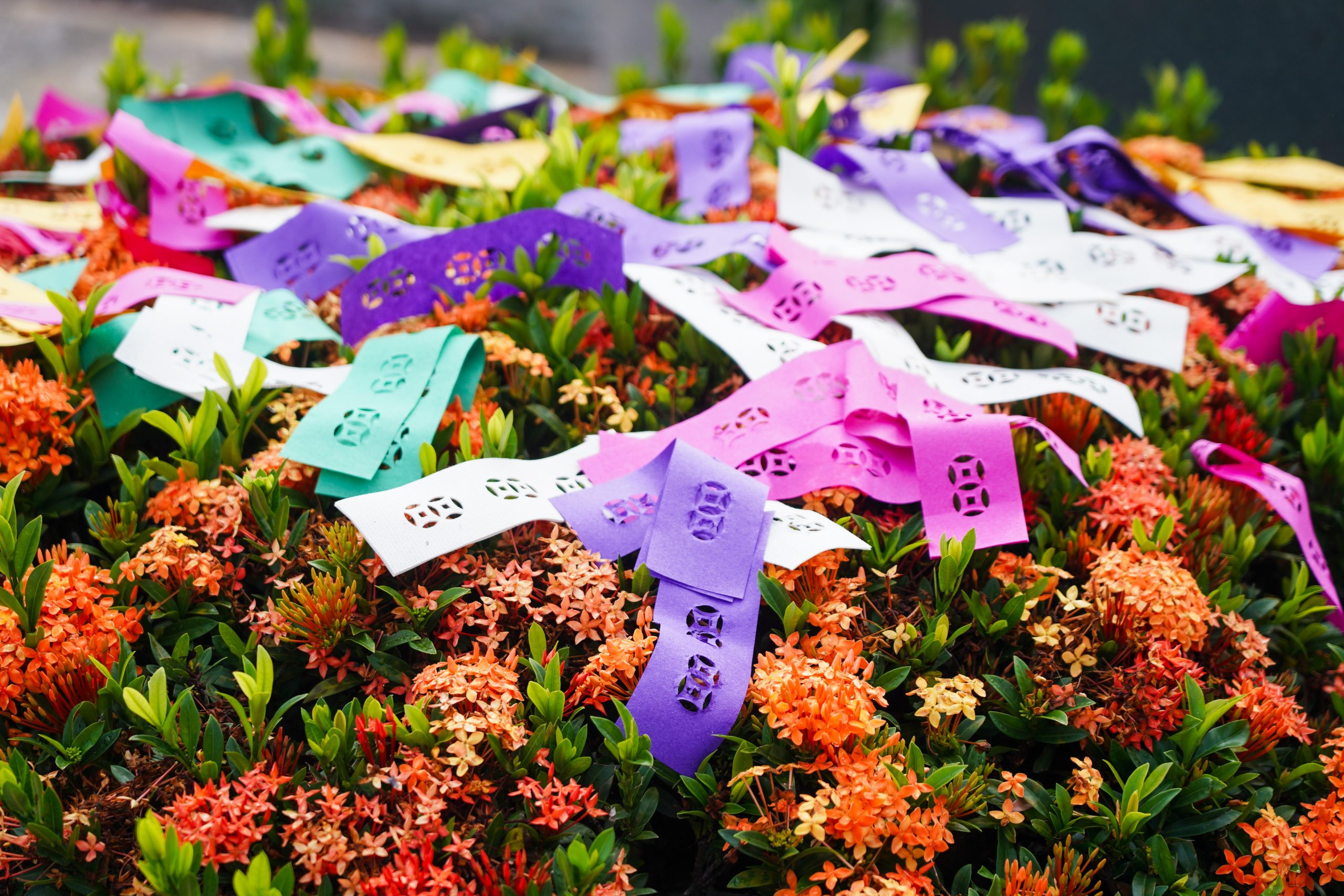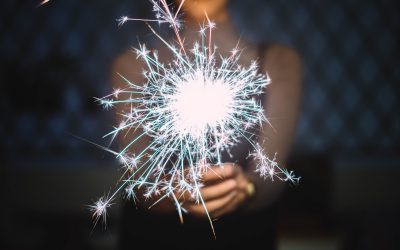Treating the Dead as in Life: Reflecting on the Meaning of Ritual

Have you noticed that Chinese people, compared to many other ethnic groups, especially emphasize the remembrance and worship of ancestors? Even though other ethnic groups may also remember deceased relatives, few exhibit the strong sense of ritual like the Chinese, not only offering various foods that the ancestors enjoyed during their lifetime but also crafting paper effigies of everyday items for their use in the afterlife.
Traditional Chinese ancestral worship rituals are among the most important activities in Chinese society, sometimes even surpassing various religious events. Even during festivals not primarily centered around ancestral worship, we still offer festival foods to our ancestors. During the Mid-Autumn Festival, we eat mooncakes; during the Dragon Boat Festival, we eat rice dumplings; during the Lantern Festival, we eat tangyuan. We never forget to offer these to our ancestors.
For feast days directly related to their ancestors, such as the birth and death anniversaries, Qing Ming Festival, Chong Yang (Double Ninth) Festival, and the Yu Lan Pen Festival, and the Zhong Yuan Festival (commonly known as the Ghost Festival), the Chinese people are even more serious about their observances. Traditional Chinese communities hold elaborate rituals for several days, sparing no expense to fill tables with offerings, both vegetarian and non-vegetarian, along with mountains of joss paper money, effigies, spirit houses, and even paper effigies of children. We try our best to fill up all parts with both the visible (offerings) and invisible (where do the paper effigies go after being burnt?) aspects.
Why do Chinese people have such social traditions?
In the “Doctrine of the Mean” from the Book of Rites, there is a phrase: “Thus they served the dead as they would have served them alive; they served the departed as they would have served them had they been continued among them – the height of filial piety.” It means that we should respect and love our deceased parents and ancestors as if they were still alive. Therefore, the various ancestral worship practices of the Chinese stem from this reverence.
The same principle applies to funeral customs. The most direct funeral customs that serve the dead as if they were alive include welcoming guests into the house, washing the face with purchased water, and offering food. Regardless of whether one believes in ghosts or spirits, the fundamental idea behind funeral customs is the love for the departed as if they were alive. The focus of offering sacrifices and crafting joss paper spirit houses is not whether “the ancestors can actually eat or receive them” but rather expressing our love and remembrance through these actions.
Although the emphasis of “serving the dead as if they were alive” lies in “filial piety” due to Confucian emphasis on family and human relationships, the “benevolence” they stress is meant to continuously expand outward. Hence, sayings like “respect your own elders as well as others’, care for your own children as well as others'” emphasize extending love beyond immediate family. Therefore, we also worship deceased teachers, friends, and even unfamiliar “good brothers.” Worshipping “lonely spirits and wandering ghosts” should stem from an extension of compassion toward society rather than fear of mysterious forces or intent for exchange conditions.
In studying funeral customs, the most common question is often “how is this custom or ritual performed?” rather than “what is its origin? Why is it done this way?” However, understanding the origin and reasons behind a custom is crucial before determining how it should be done. We often say “preserve Chinese cultural traditions,” but if only the forms are preserved without caring about or misunderstanding the underlying spiritual values, it loses its meaning.
The topic of this column is “Treating the Dead as in Life: Reflecting on the Meaning of Ritual.” “Reflecting on the Meaning of Ritual” emphasizes that when we encounter or practice a certain ritualr1, we should consider its “meaning.” “Meaning” represents not only “significance” but also “emotional significance” and “moral significance.” “Significance” refers to the spiritual values that etiquette intends to convey. “Emotional significance” is how we establish good relationships and friendships with others through ritual. “Moral significance,” the most frequently overlooked but crucial aspect, is that ritual must conform to the public norms of society and convey positive moral values. However, societal values may change with the times, so when a particular ritual can no longer embody the noble values of the current society, it should be discarded or modified.
Therefore, the purpose of this column is to maintain the compassion behind “treating the dead as in life” and to reflect together on the meanings, emotional significance, and moral significance behind various funeral customs, thus better promoting the preservation and inheritance of Chinese traditional cultural values.
Nirvana Care Professional Department – Ritual & Culture Management
Exploring the impact and development of Chinese culture on Malaysian society and focusing on the origins of the community’s funeral cultures, we have borrowed and adapted ancient customs to nurture the development, cultivation, deeper understanding and growth of Nirvana Care’s bereavement care services.
About the Author
Ng Ai Ling, Nirvana Care Professional Department – Ritual & Culture Management
Ms. Ng has a master’s degree in Chinese literature from Taiwan’s National Dong Hwa University and many years of experience in writing and research. She is currently a newspaper columnist and has been publishing articles on Hong Kong and Taiwan online platforms for many years.
The difference between columbarium and mausoleum
The difference between columbarium and mausoleum The words columbarium and mausoleum are sometimes used interchangeably but both terms actually refer to very distinct memorial structures. The mausoleum (or mausolea in plural) has always been associated with the...
Memorial options for cremations
Memorial options for cremations Upon cremation, the ashes or “cremains” are usually collected by the crematorium and returned to the family in an urn. At this stage, it is up to the bereft family to decide on how to memorialise their loved one. Professional...
Columbaria and cremation niches
Columbaria and cremation niches A columbarium is a construct used for the storage or final resting place of cremated remains in cinerary urns. They can be free standing structures, or part of a building with many niches resembling dovecotes. In fact, the term...
Burial versus cremation
Burial versus cremation When referring to burial or cremation, this usually relates to the final stage of the funeral involving the disposition of remains. In burial, the remains are interred whole below ground in a cemetery or in some cases, a crypt or mausoleum. In...
The Funeral
The Funeral Funerals tend to be very spiritual in nature and are generally dependent on the deceased’s cultural and religious background. The customs and practices may vary from place to place even for similar religions. Regardless of these differences, funerals are...
Meeting the bereavement care provider
Meeting the bereavement care provider service representative or consultant Owing to the unpredictability of death, bereavement care providers are generally on call 24 hours a day all year round and will be ready to assist at just a phone call. An understanding service...
What are bereavement care providers?
Bereavement care providers are generally professional establishments that engage in death care, burial preparation, funeral and memorialization of the deceased.
Nirvana Life Plans
Nirvana Life Plans Funeral planning is a complex and sensitive matter. Whether as a pre-plan or an immediate need, knowing where to begin and deciding what needs to be done can be daunting for many, especially for those who have never been directly involved in the...
Why is pre-planning important?
Life is uncertain; but death isn’t. That is the universal truth that is shared by all regardless of age, status, race or gender. Anyone who has lived through the unfortunate passing of a loved one will know how devastating it can be.
When is the best time to pre-plan?
When is the best time to pre-plan? The topic of death is a delicate one and it is understandable many are uncomfortable to discuss it. However, one should contemplate on this question: which comes first, tomorrow or death? We can never know for sure, but death...


























